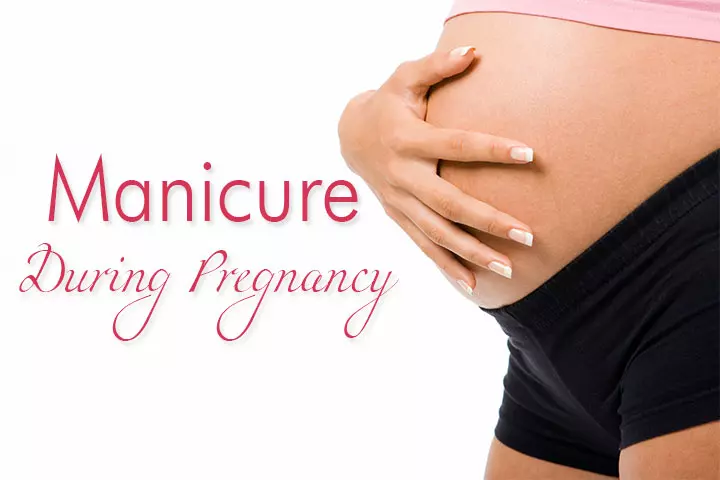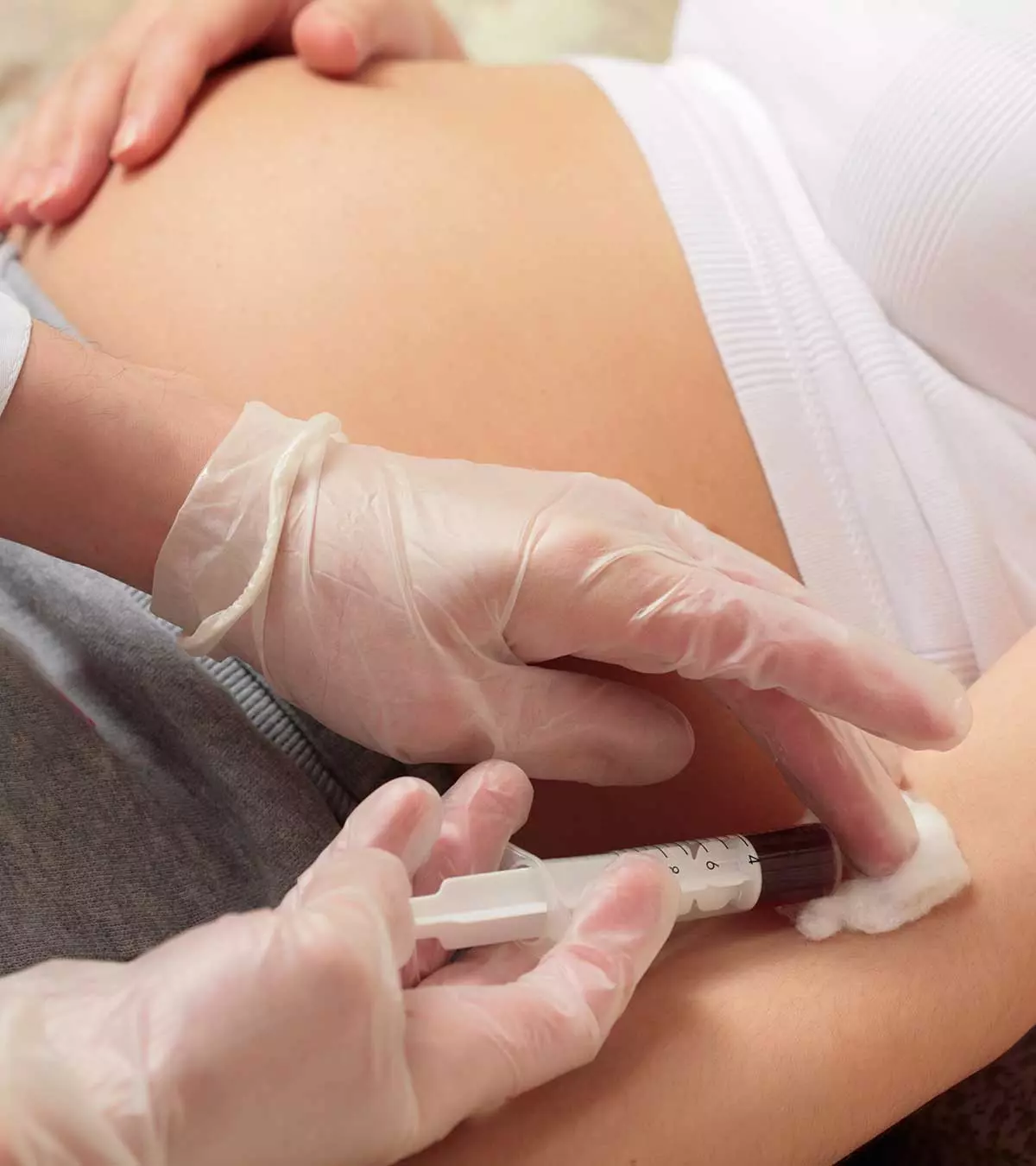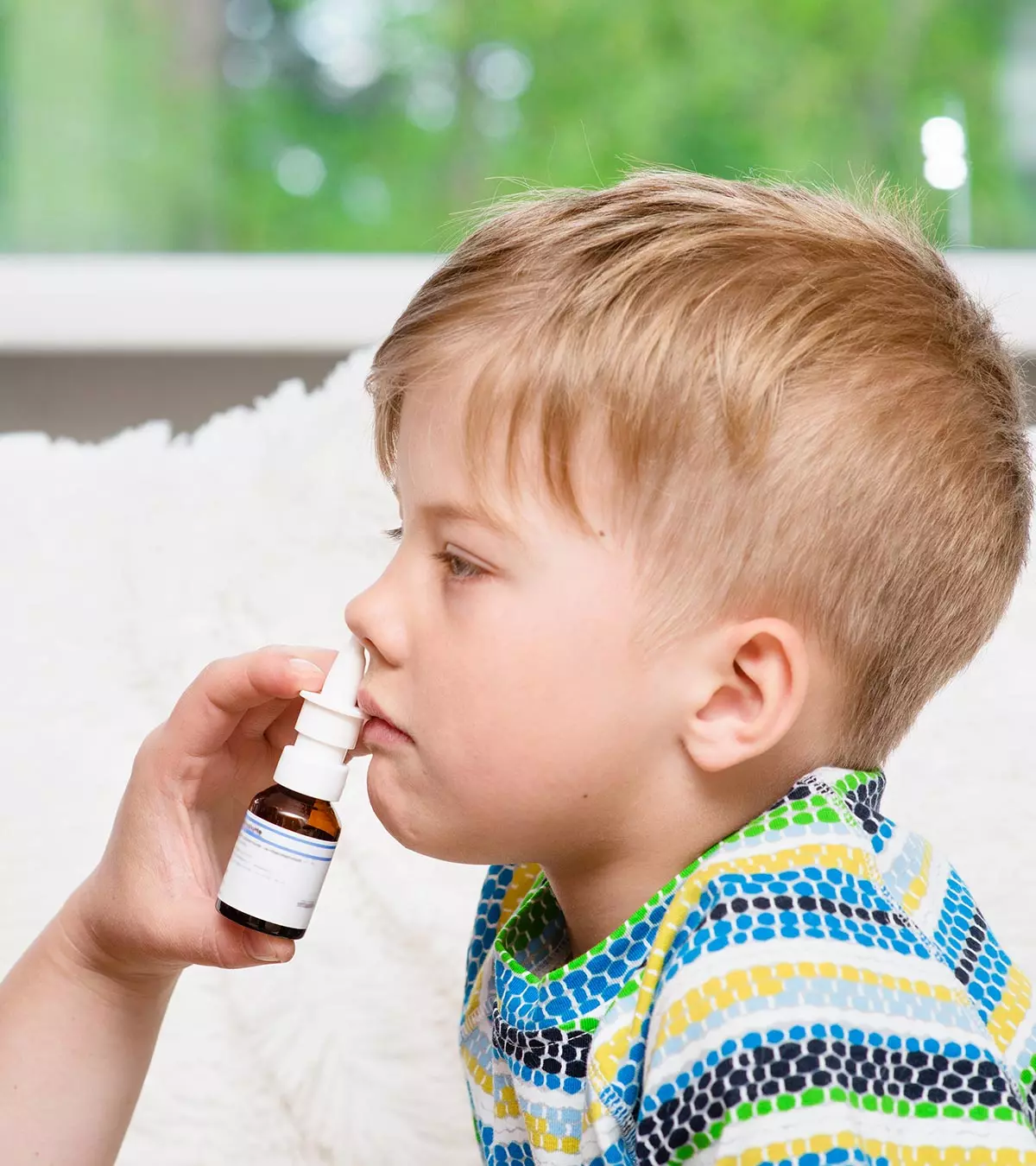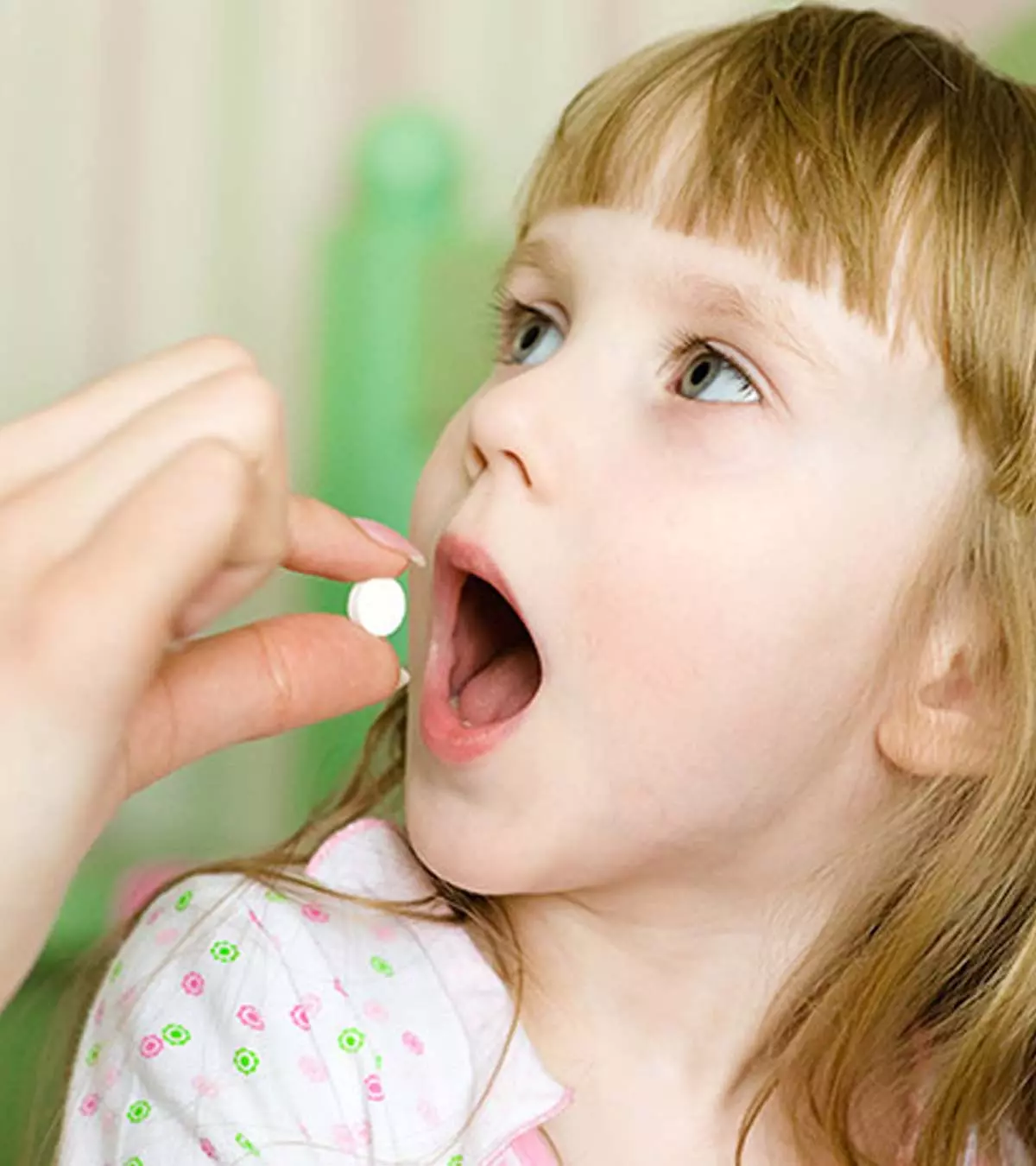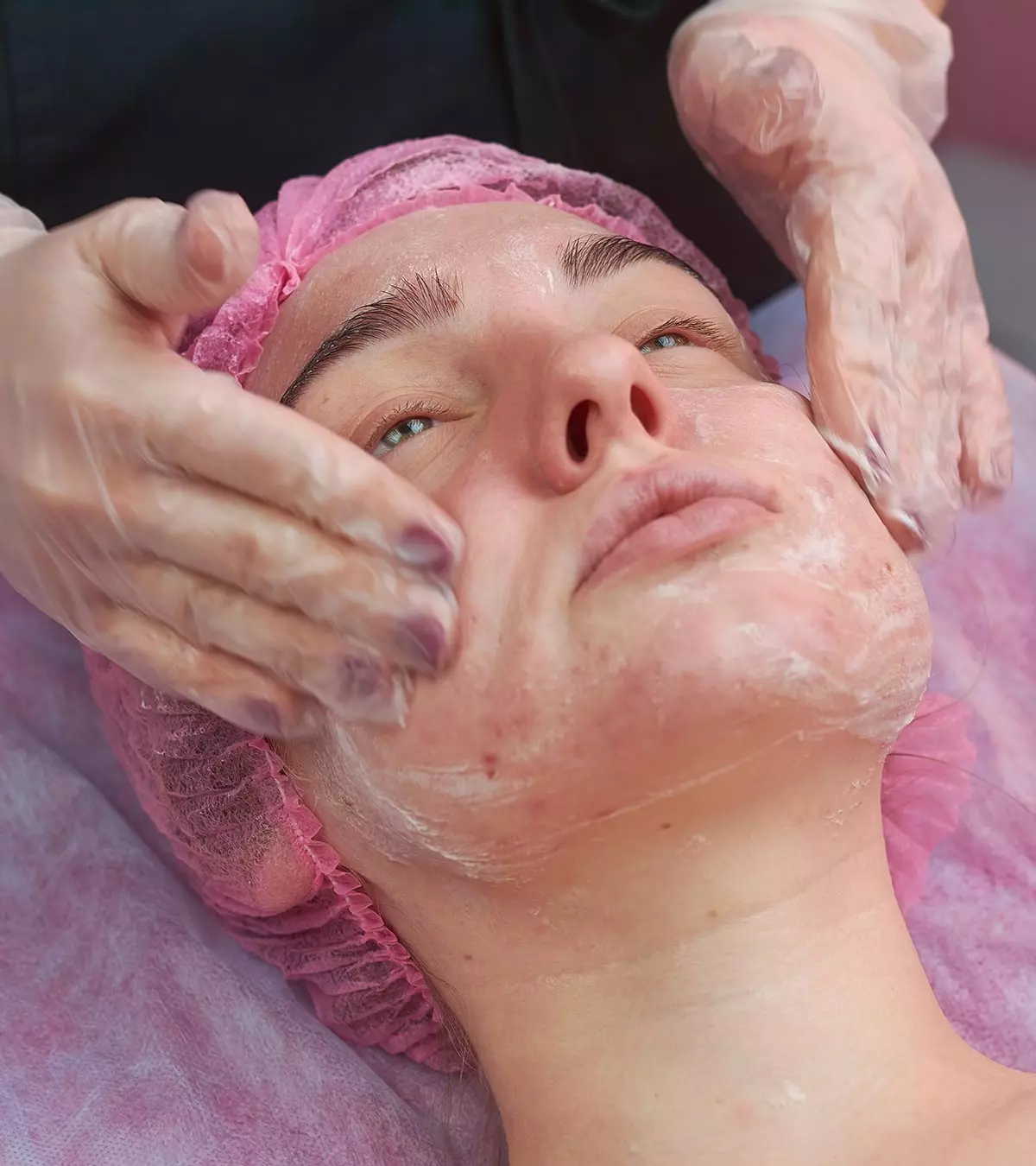
Image: Shutterstock
Glycolic acid is an active compound in several over-the-counter skincare products. However, you might be wondering if it is safe to use glycolic acid during pregnancy.
Pregnancy hormones make expecting women more susceptible to acne, dark spots, and melasma (brown or blue-gray patches around the cheeks, forehead, nose, and chin). In such cases, you may want to try medicated topical treatments, exfoliation, or a chemical peel to help your skin. But, not all products are safe to use while pregnant.
In this post, we address several frequently asked questions about using glycolic acid in pregnancy and other natural pregnancy-safe acne treatment options.

Key Pointers
- Glycolic acid effectively treats wrinkles, acne scars, and hyperpigmentation.
- It has minimal absorption into the bloodstream and is considered safe.
- Pregnant women should consult a doctor before using products containing glycolic acid.
- Possible side effects include redness, irritation, stinging, burning, and itching.
- Use a mild cleanser, regularly shampoo hair, and avoid oil-based cosmetics and moisturizers to treat acne during pregnancy.
What Is Glycolic Acid?
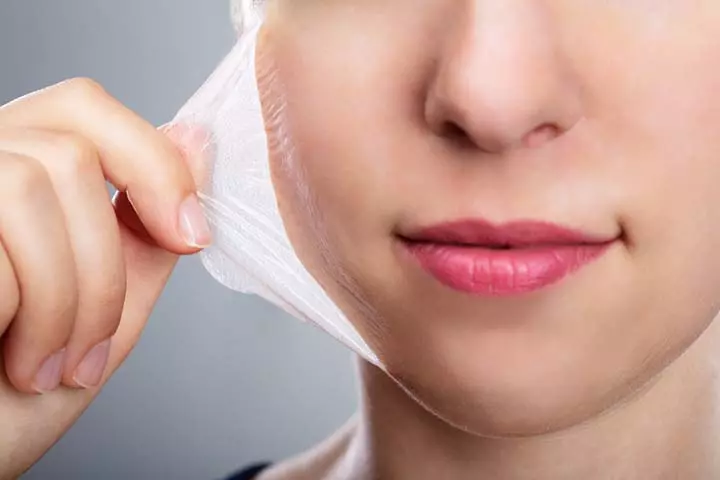
Glycolic acid is a naturally occurring alpha-hydroxy acid (AHA) that is found in sugarcane (1). Due to its skin-penetration properties, glycolic acid is used in skin care products and chemical peels to treat wrinkles, acne scars, and hyperpigmentationiA term used to describe dark patches on the skin because of additional melanin production. (2).
How Does Glycolic Acid Work In Treating Acne?
Acne usually occurs when the skin pores are clogged with dead skin cells. Upon application, glycolic acid reacts with the upper layers of the skin and dissolves the lipids that bind the dead skin cells together, thus clearing the pores and reducing acne.
It also inhibits tyrosinaseiAn enzyme responsible for managing melanin production. , which can suppress melanin production, leading to skin lightening for women who have melasma (2). Thus, glycolic acid is one of the common skincare ingredients in acne treatment products.
Is Glycolic Acid Safe During Pregnancy?

The American College of Obstetricians and Gynecologists (ACOG) approves the use of over-the-counter topical creams containing glycolic acid (3). It is deemed safe as a minimal amount of glycolic acid is likely to be absorbed into the bloodstream (4).
Lily, a blogger, explains how she included glycolic acid in her skincare regimen while she was pregnant. She shares, “I’m currently using low doses of glycolic acid on a reusable cotton pad to gently exfoliate my face, neck, and decolletage once per week. My skin absolutely loves this step, and feels smooth and more alive afterward. I find it has the added benefit of also helping with pigmentation and acne that develops during the trimesters (i).”
Studies on rats showed some adverse effects on the fetus when exposed to 300-600mg of glycolic acid daily (which is a much higher dosage than used in humans) (5). There are no well-controlled studies in pregnant women to quantify the safety of glycolic acid during pregnancy. Therefore, exercise caution and consult your doctor before incorporating glycolic acid into your skincare routine.
 Did you know?
Did you know?Are Glycolic Acid Peels Safe During Pregnancy?
Glycolic acid peels are contraindicated during pregnancy (6). It is because the glycolic acid concentration in the products used for chemical peels may be high and could have adverse effects. Thus, it is best to exclude chemical peels from your pregnancy skincare routine (6).
What Are The Side Effects of Glycolic Acid During Pregnancy?

There are no studies to evaluate the effect of glycolic acid on the developing fetus. However, lower doses of glycolic acid (1 and 3mg /cm2) caused erythema (reddening of the skin) and eschar (a dark swab of dead skin), whereas higher doses (5 and 7mg/cm2) caused redness, edemaiSwelling due to the accumulation of fluids in the body’s tissue. , and necrotic ulcerationiAn open sore or wound characterized by dead tissue around the ulcer. , according to one study on humans (7).
Using glycolic acid and other chemical peels during pregnancy may cause irritation, stinging, burning, and itching. Also, some studies demonstrated that the damage caused by glycolic acid could increase by the dosage and the duration of exposure. It also enhances the UVB-induced skin damage (6).
When Should You Consult A Dermatologist?

Normal to moderate acne and hyperpigmentation are common during pregnancy, and they subside once your hormones come to a normal range after the pregnancy. But if you have a high degree of acne or hyperpigmentation, visit your dermatologist and discuss the course of treatment specific to your skincare concerns.
Creams containing glycolic acid are usually well-tolerated, but if you are experiencing redness and itching, then stop using the cream and tell your dermatologist about it.
What Are The Alternatives Ways To Deal With Acne During Pregnancy?

It is important to prioritize skincare during pregnancy by following pregnancy skincare tips. The American College of Obstetricians and Gynecologists recommends these safer alternatives to treat acne during pregnancy (3).
- Use a mild cleanser and lukewarm water to wash your face twice daily.
- Sometimes, the sebum in the hair can also cause acne during pregnancy. If you have an oily scalp, shampoo every day and try to keep your hair away from your face.
- Do not pick, squeeze, or tweeze the pimples as it could result in acne scars.
- Avoid oil-based cosmetics and moisturizers.
 Quick tip
Quick tipFrequently Asked Questions
1. What concentration of glycolic acid is safe during pregnancy?
Research says that glycolic acid in cosmetics is safe, provided that its concentration is below 10% and the final formulation has a pH above 3.5 (10). Seek approval from a doctor before using glycolic acid in pregnancy.
2. Are there any alternative treatments for hyperpigmentation during pregnancy?
Hyperpigmentation or melasma during pregnancy may resolve on its own without any treatments. You may reduce the chances of it occurring by wearing protective clothing and hats that cover the face and arms and using pregnancy-safe sunscreen with at least 30+ SPF. Use gentle, fragrance-free, and dermatologist-recommended skincare products (11).
3. What are the precautions to take while using glycolic acid during pregnancy?
If using glycolic acid during pregnancy, it is vital to use a low concentration, avoid using it in large amounts, and do a patch test before applying it to the entire face.
Hormonal alterations in pregnancy could pose a risk of skin problems such as acne, pigmentation, and dark spots. Acne might cause pain and irritation while pregnant, and you may want to consider using skin products with glycolic acid during pregnancy. However, you must consult a doctor or skin specialist before adding over-the-counter medications to your pregnancy skincare routine. Also, overusing chemical products, such as glycolic acid, is not advisable during pregnancy. Moreover, skin issues such as acne are temporary in pregnancy or right after pregnancy and may resolve spontaneously after some days.
Infographic: Alternative Ways To Treat Acne During Pregnancy
Pregnant women undergo many skin changes, including acne outbreaks or worsening of preexisting acne. Medications and skin treatments are available for managing the condition, but you should discuss them with a board-certified dermatologist before opting for any. The infographic below lists some pregnancy-safe medical treatments for acne and suggests some tips to manage the condition at home.
Some thing wrong with infographic shortcode. please verify shortcode syntaxThis post is for informational purposes only and is not a replacement for a doctor’s consultation. Do not use any medication without talking to your doctor.
Illustration: Is Glycolic Acid Safe During Pregnancy?
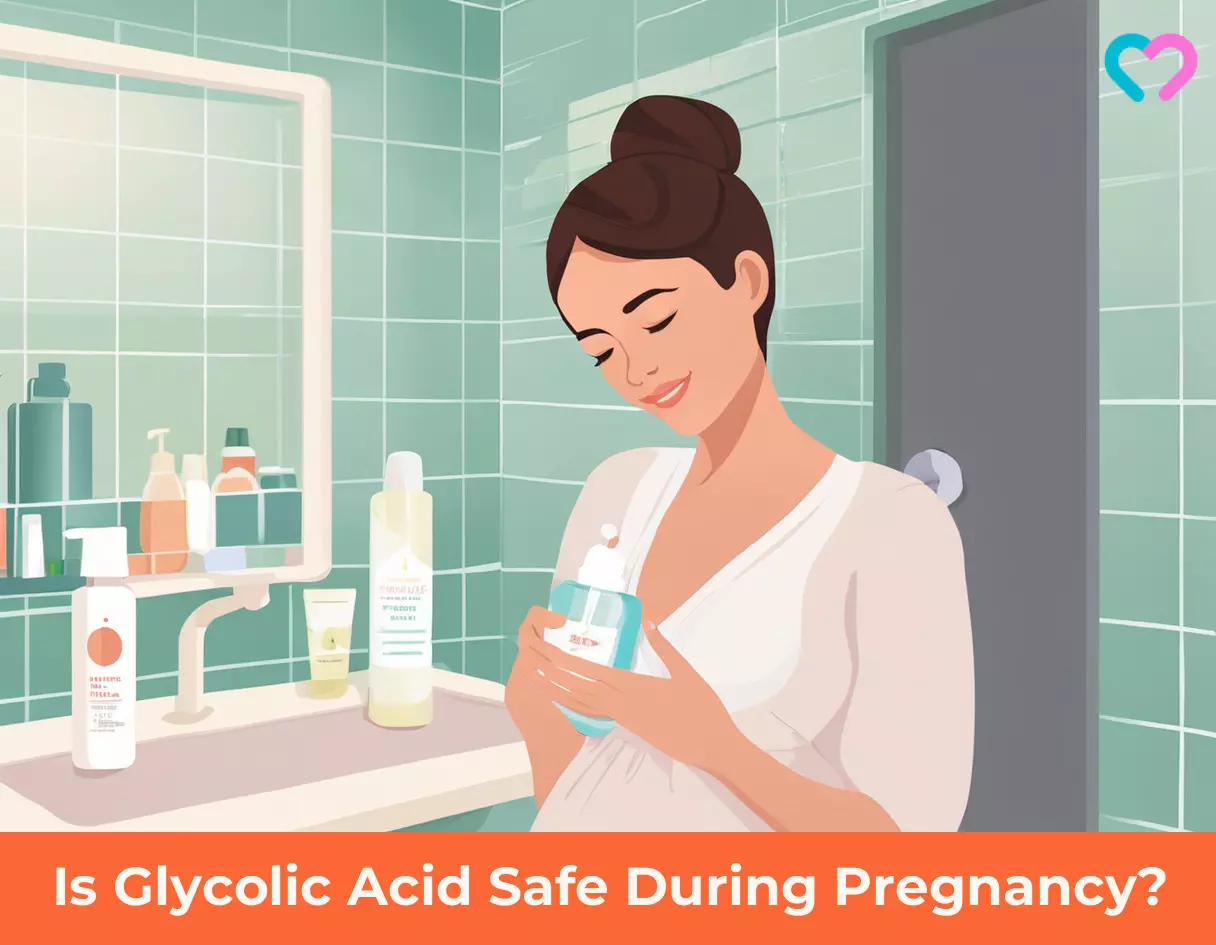
Image: Stable Diffusion/MomJunction Design Team
Acne during pregnancy though quite common during pregnancy may be distressing to a few women. Here are some tips for home management and treatment of acne in pregnancy.
Personal Experience: Source
MomJunction articles include first-hand experiences to provide you with better insights through real-life narratives. Here are the sources of personal accounts referenced in this article.
i. Pregnancy skincare routine;https://lilynotlouise.blogspot.com/2025/10/pregnancy-skincare-routine.html#google_vignette
References
1. Erica C. Davis, and Valerie D. Callender; Postinflammatory Hyperpigmentation
2. Glycolic Acid; PubChem; US National Library of Medicine
3. Skin Conditions During Pregnancy; The American College of Obstetricians and Gynecologists
4. Pina Bozzo, Angela Chua-Gocheco M.D, and Adrienne Einarson, RN; Safety of skin care products during pregnancy; NCBI(2011)
5. Jonette E. Keri, M.D., Ph D; Treatment of Acne in the Pregnant Patient; American Association of Dermatology
6. Gabriella Fabbrocini, Maria Pia De Padova, and Antonella Tosto; Glycolic Acid; LSM University
7. David E Castillo, and Jonette E Keri; Chemical peels in the treatment of acne: patient selection and perspectives; NCBI(2018)
8. Anna L. Chien, et al.; Treatment of Acne in Pregnancy; The Journal of the American Board of Family Medicine
9. Acne: Diagnosis and Treatment; American Academy of Dermatology Association
10. F.A. Andersen et al; Final Report On the Safety Assessment of Glycolic Acid, Ammonium, Calcium, Potassium, and Sodium Glycolates, Methyl, Ethyl, Propyl, and Butyl Glycolates, and Lactic Acid, Ammonium, Calcium, Potassium, Sodium, and Tea-Lactates, Methyl, Ethyl, Isopropyl, and Butyl Lactates, and Lauryl, Myristyl, and Cetyl Lactates; International Journal of Toxicology (1998).
11. What to Know About Melasma and Other Skin Changes During Pregnancy; WFMC Health
Community Experiences
Join the conversation and become a part of our nurturing community! Share your stories, experiences, and insights to connect with fellow parents.
Read full bio of Rebecca Hughes
Read full bio of shreeja pillai
Read full bio of Swati Patwal
Read full bio of Lorraine Teron






